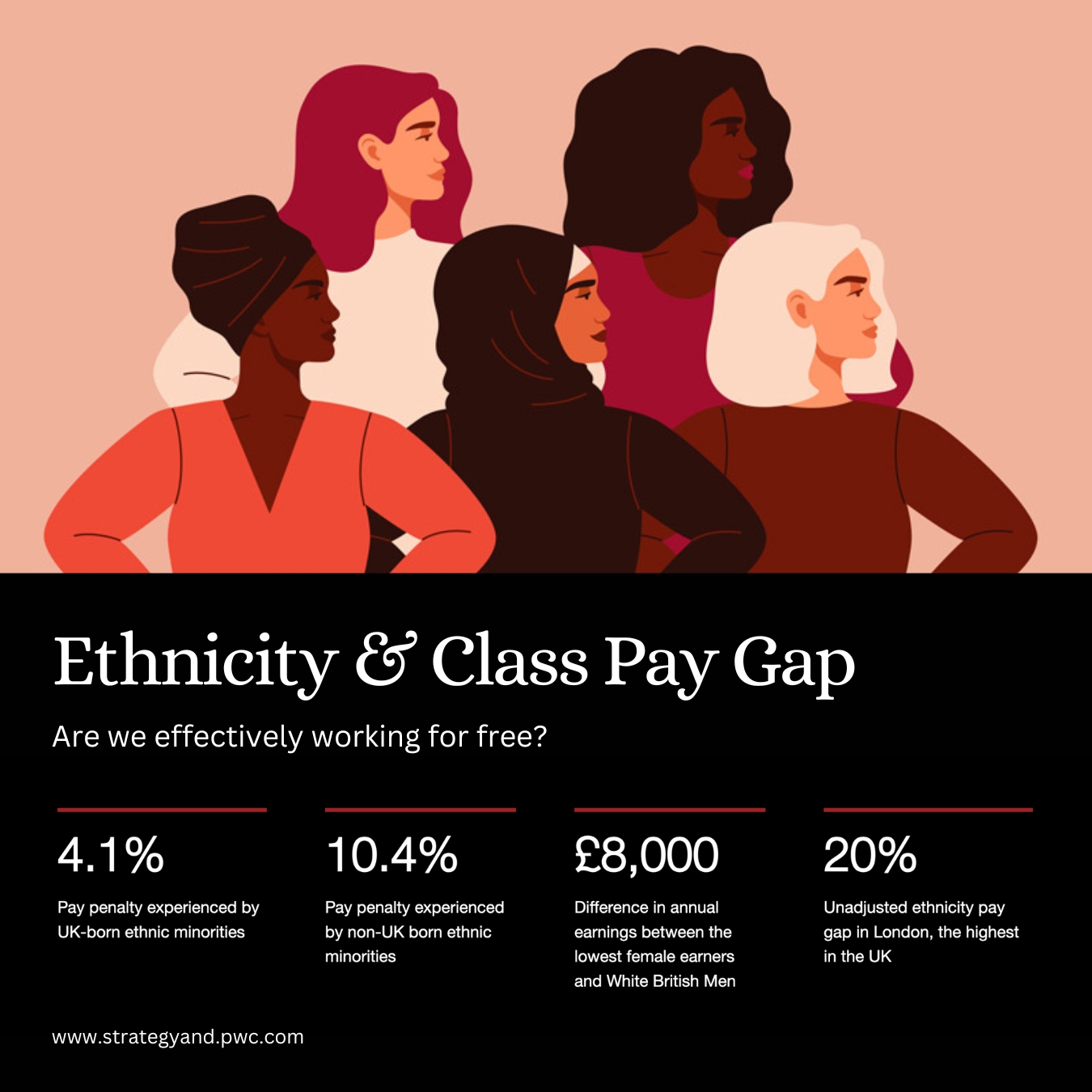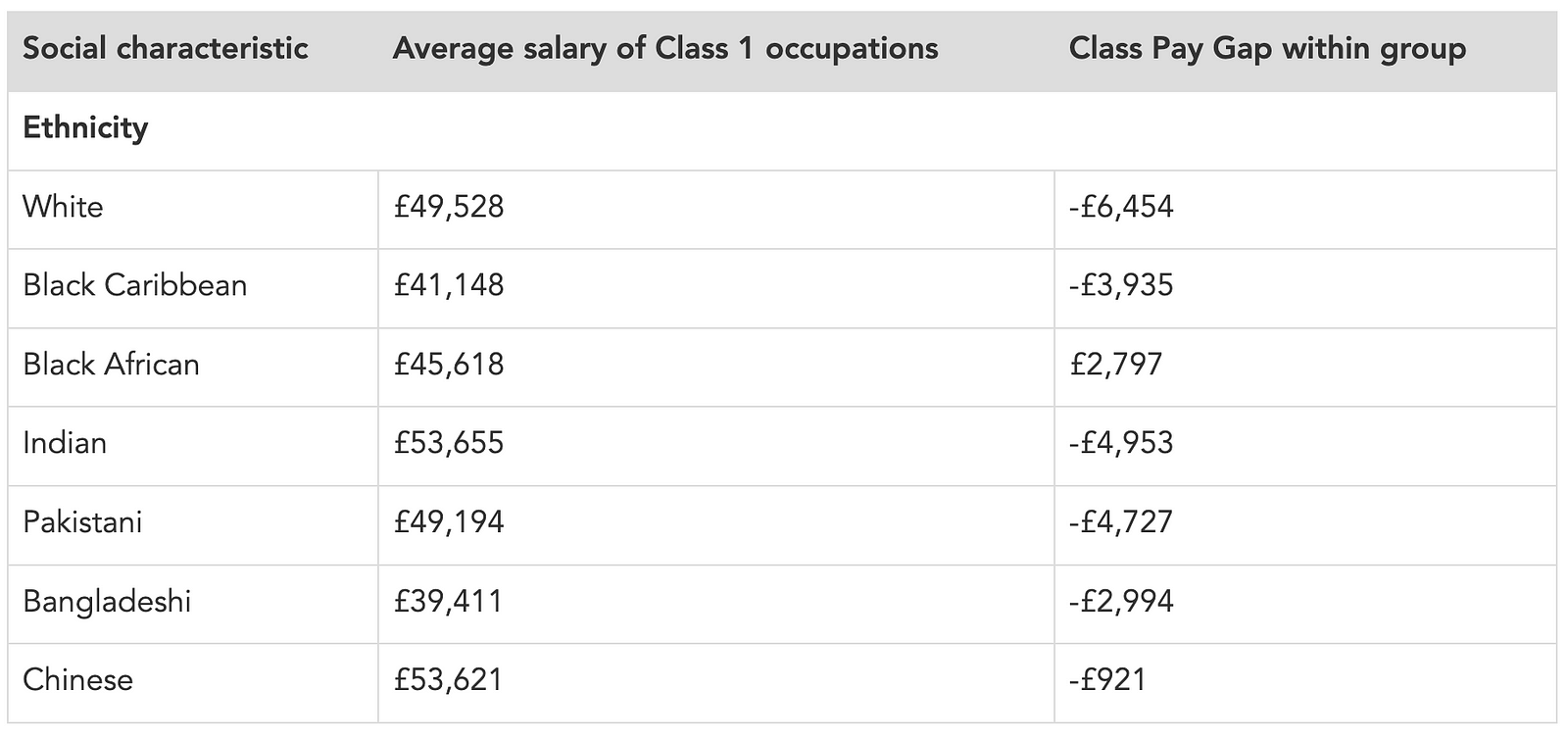
Are we effectively working for free?
I am compelled to address an issue that, while often overlooked, remains a stark reality in western workplaces: the persistent wage gap affecting ethnic minorities and working-class employees, even within the same organisations.
Despite a third of UK employees working in ethnically diverse environments, this does not translate into wage equality. Male workers from non-white ethnic backgrounds earn approximately 11% less than their white counterparts, with women facing a 7% gap. This disparity is not just a number; it is a reflection of a deeply ingrained societal issue.
The immediate assumption might be that this wage gap stems from occupational segregation, but that’s not the entire story. The real cause is more insidious and harder to pinpoint. There’s a tempting narrative to attribute this to the idea that non-white employees might accept lower wages for intangible job benefits. However, research contradicts this, revealing that ethnic minority workers are often less satisfied with their pay compared to their white peers, despite frequently feeling over-qualified for their roles.
This is not just a financial issue but a mental health crisis in the making. The subtle yet pervasive racial slights — or micro-aggressions — in workplaces have profound impacts, as highlighted by research from Rice University. This study particularly focused on the experiences of 350 Black employees, shedding light on the mental toll of enduring these micro-aggressions and the exhausting act of racial code-switching. Such actions, while seemingly fostering a sense of professionalism, come at a high personal cost.
What is most disconcerting is that while companies advocate for inclusivity and encourage employees to ‘bring their whole selves to work,’ they unknowingly perpetuate a culture that penalises those who do not conform to the norm. This is not just about unequal pay; it’s about the systemic failure to recognise and value the true diversity of talents and perspectives that ethnic minorities and those from lower socioeconomic backgrounds bring to the table.
Also see strategyand.pwc.com Ethnicity Pay Gap Report here.
The Class Pay Gap
Professionals from working-class backgrounds are being paid less than their more privileged peers in the same occupation, £6,291 — or 12% less — a year. This means that they effectively work 1 in 8 days for free.
According to socialmobility.org.uk, the Class Pay Gap varies considerably by ethnic group but some groups face an additional disadvantage due to their ethnic background as well as their class. The largest Class Pay Gap within an ethnic group is between White workers from a working-class background and those from a professional-managerial origin. Those from a working-class background are paid £6,464 less per year, despite being in the same occupation.

We need to introspect and take actionable steps towards not just diversity in hiring but equity in treatment and remuneration. This issue demands more than acknowledgment; it requires a concerted effort to dismantle the inherent biases and structural barriers that perpetuate this wage gap. As thought leaders, industry experts, and responsible citizens, we must challenge these norms and advocate for a workplace where diversity is not just seen but valued in its entirety.
Levelling The Playing Field
socialmobility.org.uk have worked with the Bridge Group, Clifford Chance, Co-op, KPMG UK, PwC UK and Teach First to make this guide, Levelling The Playing Field, provides a seven-step summary for organisations that want to collect and report on socioeconomic background data. The guidance follows established best practice in gender pay reporting and makes recommendations on how this can be applied to socioeconomic background.






